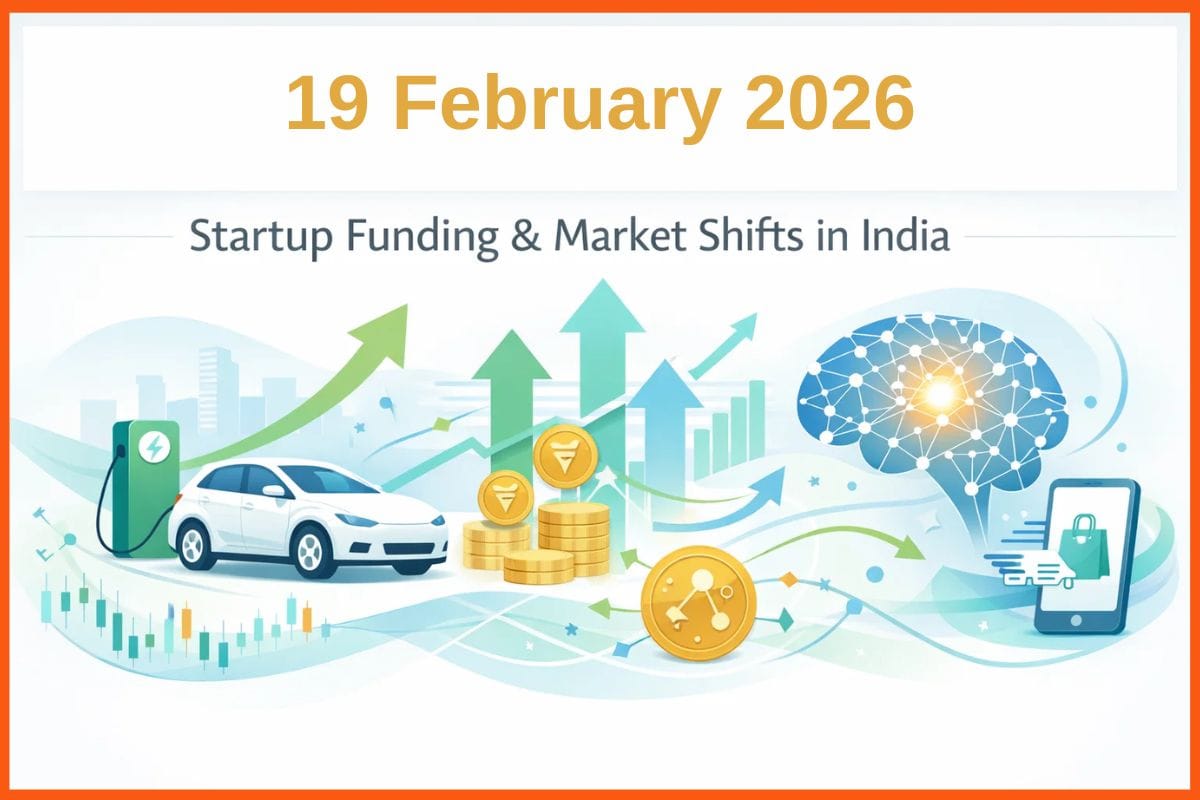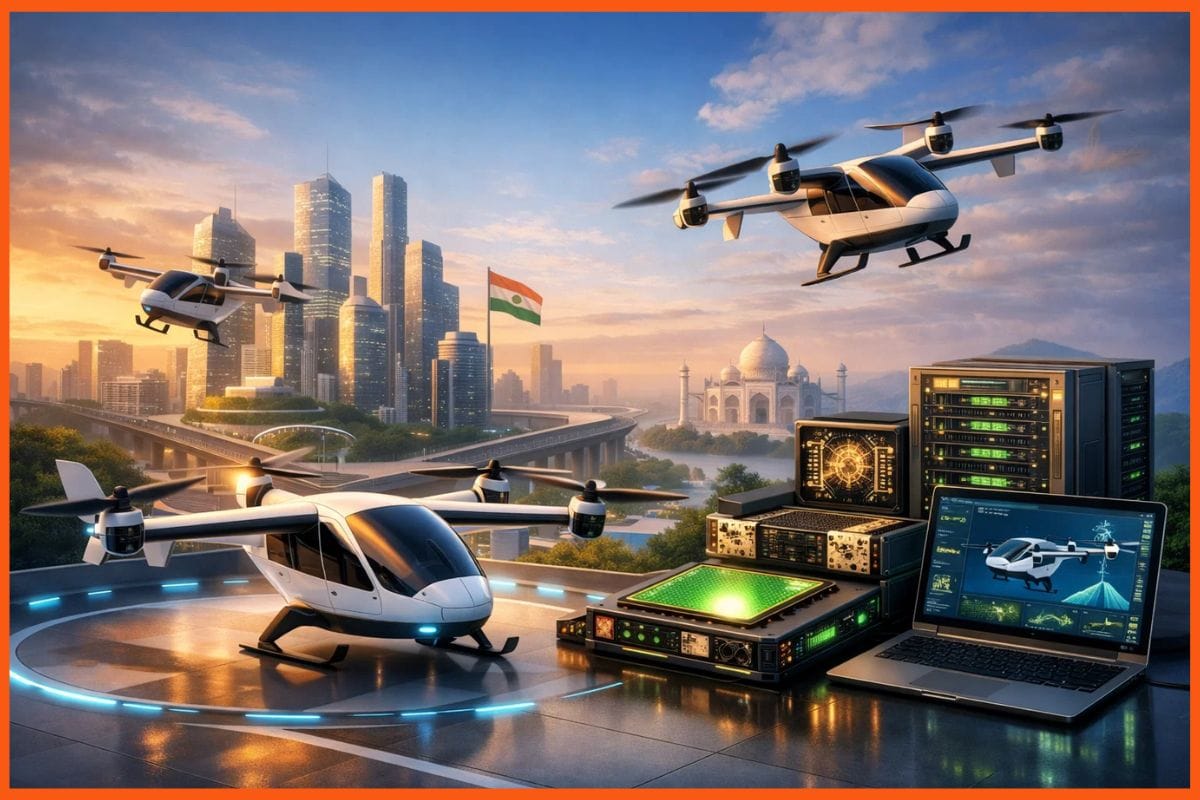How Artificial Intelligence and Augmented Reality Have Revolutionized the Beauty Industry
🔍Insights
While your skin endures the challenges of pollution, stress, weather fluctuations, poor lifestyle habits, and lack of sleep, skincare brands in India and globally are evolving with strategies driven by artificial intelligence (AI) to attract more customers and set notable trends in beauty and personal care products.
Gone are the days when traditional skincare formulas passed down from mothers, like aloe vera and curd, were the sole priority for daughters. Over the past two decades, the skincare industry has witnessed a significant transformation driven by changing consumer preferences, consistent research and development, technological advancements, and a growing demand for more suitable, natural, sustainable, and skin-friendly products.
For example, an Indian beauty brand, ‘Forest Essentials’ focuses on Ayurvedic skincare. Recently, it introduced customizable creams with Ayurvedic facial care formulas to target specific skin issues.
Customers are asked to fill out a quiz or a questionnaire, and the algorithm analyses their answers. Then, based on this information, the system suggests the best-suited product to their needs. This makes it easier for customers to find the right skincare solution without needing help from skin specialists, dermatologists, or other experts.
How AI Is Enhancing User Experience
AI Technologies in Beauty Segment
- Perfect Corp — Skin Type Detection AI Technology
- Haut.AI — Phygital Skin AI Tool
- Cetaphil — Skin AI Analysis
- Vichy Laboratoires — Skin Consult AI
- Revieve — Personalized Digital Beauty Experiences
Leading Players
Industry Developments
Key Challenges
Future Prospects
How AI Is Enhancing User Experience
With a global valuation of USD 181.2 billion, the beauty industry is undergoing a remarkable transformation fueled by the integration of artificial intelligence (AI) and augmented reality (AR).
From AI-driven skin analysis to personalized skincare recommendations, this technology is revolutionizing the market landscape and fostering continuous evolution. AI is enhancing the beauty sector overall, with a particular focus on skincare, by introducing innovative tools that cater to various skin needs, and sensitivities and enhance the overall user experience.
Artificial intelligence (AI), augmented reality (AR), and virtual reality (VR) are creating new perspectives for skincare. AI algorithms can accurately detect various skin conditions and concerns, including acne, rosacea, dark spots, patches, pigmentation, and more, through the analysis of images uploaded by users.
"There is consumer optimism for AI, as 81% of Indian consumers who have heard of AI agree that it will be mostly beneficial to society. To build trust, brands need to be transparent about how AI is used in beauty, how data is handled, and what measures are in place to protect user information," said an article on 'How global beauty and personal care trends are playing out in India' published by market intelligence agency Mintel.
AI-powered skincare platforms can analyze various aspects of an individual's skin, such as hydration levels, redness, wrinkles, oiliness, elasticity, and sensitivity. By providing detailed insights into these factors, AI enables users to gain a deeper understanding of their skin's characteristics, empowering them to make informed decisions about their skincare routine.

AI Technologies in Beauty Segment
Here are five artificial intelligence skincare technologies that are pushing the skincare industry:
Perfect Corp — Skin Type Detection AI Technology

This sophisticated tool is tailored for skincare brands, medical spas, and skincare professionals, enabling them to educate, advise, and guide customers on their skincare journey. With its ultra-fast edge AI algorithm, the solution expertly analyzes facial images, swiftly determining all 14 types of skin concerns, skin types, and skin age in under two seconds. This comprehensive skin analysis can be conducted using a simple photo or in real time through live camera mode.
Haut.AI — Phygital Skin AI Tool
AI for skincare by Haut.AI™
Haut.AI is an innovative Software as a Service (SaaS) product that automates the collection of high-quality skin data. The product helps skincare brands provide skin testing and build interactive product recommendations on e-commerce platforms. The tool takes skin measurements with on-skin testers and continues the journey in a digital skincare app. Customers are given detailed skin scores and the mobile app allows shoppers to analyze and track results to make educated decisions and find a tailored selection of products.
Cetaphil — Skin AI Analysis

This skin care analysis tool works in browsers, even on the phone. It gives information on hydration, redness, oiliness, dark circles, patches, and more.
How to access Cetaphil
- Step 1. Open the Cetaphil AI Skin Analysis on your mobile.
- Step 2: Take a selfie.
- Step 3: The Cetaphil AI Skin Analysis will scan your face and analyze your skin.
- Step 4: Receive your personalized skin analysis report and skincare routine advice.
Vichy Laboratoires — Skin Consult AI

Similar to the Cetaphil analysis tool, Vichy Laboratories' Skin Consult AI offers a QR code to scan for quick results. The tool creates a customized skincare routine on an individual basis by detecting fine lines, wrinkles, pores, pigmentation, radiance, under-eye bags, and firmness.
Revieve — Personalized Digital Beauty Experiences

Revieve's Artificial Intelligence (AI) and Augmented Reality (AR) digital beauty experience offers several options in virtual beauty, including an AI skincare advisor, AI makeup advisor, AI nutrition advisor, AI sun care advisor, and an AI hair care advisor. The company's digital health-beauty-wellness platform features self-diagnostic modules that deliver consumers targeted items, services, care, and treatments.

Leading Players
According to 'The Business Research Company’s AI In Beauty And Cosmetics Global Market Report 2023', the global AI in beauty and cosmetics market size is expected to grow from USD 2.68 billion in 2022 to USD 3.27 billion in 2023 at a compound annual growth rate (CAGR) of 21.7%.
The global AI in cosmetics market size is expected to be at USD 6.8 billion in 2027 at a CAGR of 14.4%.
Key players in the beauty industry are leveraging augmented reality (AR) to deliver interactive, immersive, and customer-focused experiences, engaging shoppers in innovative ways.
Beauty brands are offering a range of personalized and convenient shopping experiences, from skin health assessments to intelligent color matching. This advancement has significantly enhanced accessibility and customization in the beauty retail sector.
Leading players in the beauty industry, such as L’Oréal S.A., Beiersdorf AG, Olay, Shiseido, Procter & Gamble, Pure & Mine, YOus Skincare, My Beauty Matches, EpigenCare Inc., mySKIN are investing in AI-powered solutions to stay ahead of the curve and meet evolving consumer demands.
One can not just pick their night foot cream, and body talc using AI but also make smart choices with their hair oils, shampoos, perfumes, sunglasses, and fragrances.
Industry Developments
The key industry developments in the past few years from leading players include:
- Nykaa has introduced a new technology from L’Oréal called ModiFace AR, which uses artificial intelligence (AI) to let you try on makeup virtually. This makes shopping for beauty products online more fun and easy. With ModiFace, you can see how makeup realistically looks on you. This feature is available on Nykaa’s website and mobile app, starting with L’Oréal products.
- PROVEN Skincare has started a funding round called a Regulation A+ Offering, targeting to raise $60 billion. They plan to use these funds to keep improving their AI technology, hire more talent, promote their products better in both local and global markets, and develop new skincare products through research and development.
- Beauty technology company Perfect Corp has collaborated with Google to offer virtual beauty try-ons using augmented reality (AR). It means you can try on different beauty products and colors online through Google search.
Key Challenges
- Data Quality: Beauty and cosmetics companies are trying their utmost to compete with the evolving technical changes. Effective AI implementation depends heavily on access to large volumes of high-quality data. However, obtaining such data can be challenging due to privacy concerns, and inconsistencies in data collection procedures.
- Privacy Concerns: People or consumers may or may not be comfortable sharing their pictures and sensitive details about their faces and bodies on AI apps. Ensuring data privacy, and earning consumer trust in handling sensitive personal information responsibly are critical aspects for cosmetic companies.
The article by Mintel said: "While providing personalized solutions, brands must maintain transparency in handling data. Additionally, leveraging AI can enhance transparency efforts and facilitate the creation of “clean formulations.”
- Complexity in Beauty Products: Cosmetics encompass a wide range of products with varying formulations, chemicals, consistencies, textures, and shades. Developing AI algorithms that can accurately analyze and recommend suitable products for diverse consumer preferences and skin types is complex. AI algorithms can aid in analyzing consumer trends, and market preferences to inform product innovation and optimize product performance.
At the same time, beauty is a very personalized concept and its definitions can vary across cultures and regions, a beauty company cannot completely rely on just AI algorithms to reform its product lines, access the right customer base, and increase sales. - Skill Gap: Developing and implementing AI technologies in the beauty segment requires specialized training and expertise in data sciences and machine learning. Cosmetic companies may face challenges in recruiting and retaining the right talent with the necessary skills.
- Cost: Implementing AI technologies involves significant upfront costs for software development, hardware infrastructure, data acquisition, and continuous maintenance. Small and medium-sized cosmetic companies may find it difficult to justify these investments.
Future Prospects
The surge of AI beauty and skincare has a promising outlook for the future. AI in the skincare sector is promising and poised for significant growth. As technology continues to advance, AI applications in the skincare industry are expected to revolutionize the sector in several ways.
AI-driven skincare solutions will transform the way consumers deal with and address their skincare concerns. From analyzing skin conditions and recommending personalized routines to predicting future skincare concerns, AI will play a crucial role in optimizing skincare outcomes.
As AI technologies continue to evolve and push beyond boundaries in all markets, they will redefine industry standards and drive positive transformation across all aspects of beauty product development, marketing, and consumer engagement.
FAQs
Who are the key players in the beauty industry?
Leading players in the beauty industry include L’Oréal S.A., Beiersdorf AG, Olay, Shiseido, Procter & Gamble, Pure & Mine, YOus Skincare, My Beauty Matches, EpigenCare Inc., and mySKIN.
What are the Artificial intelligence skincare technologies that companies follow?
Here are five artificial intelligence skincare technologies that are pushing the skincare industry:
- Perfect Corp — Skin Type Detection AI Technology
- Haut.AI — Phygital Skin AI Tool
- Cetaphil — Skin AI Analysis
- Vichy Laboratoires — Skin Consult AI
- Revieve — Personalized Digital Beauty Experiences
What are the key challenges that a skincare company might face in implementing AI?
The key challenges that a skincare company might face in implementing AI include data privacy, cost, complexity of beauty products, skill gap, and privacy concerns.
What is the market size of the global beauty tech industry?
The global AI in beauty and cosmetics market size is expected to grow from USD 2.68 billion in 2022 to USD 3.27 billion in 2023 at a compound annual growth rate (CAGR) of 21.7%.
Must have tools for startups - Recommended by StartupTalky
- Convert Visitors into Leads- SeizeLead
- Website Builder SquareSpace
- Run your business Smoothly Systeme.io
- Stock Images Shutterstock







